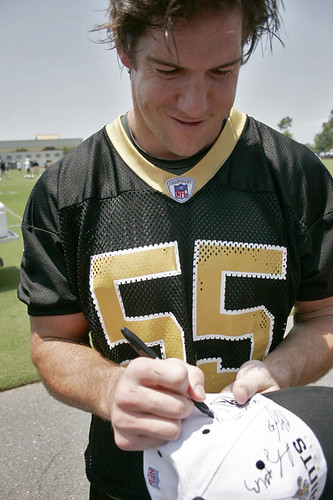by guest blogger, Rachel Pepper
A new generation of LGBT activists recently inspired us with their vision to energize our movement on Sunday October 11 at the National Equality March for Lesbian, Gay, Bisexual and Transgender on Washington. Under sunny skies, with banners waving and spirits held high, participants promoted the timely message of “Equality Across America.”
Many celebrities were also in the mix, including openly gay Sex in the City star Cynthia Nixon, singer Lady Gaga, and NAACP Chairman Julian Bond, all of whom spoke at the event. Celebrities have always been a part of the past Marches on Washington, which occurred in 1979, 1987, 1993, and 2000. Yet, a certain level of societal homophobia has guaranteed that many big names-- especially in the world of professional sports—would never previously have come forward in support of LGBT rights.
However, even as society continues to change, and more people understand that gay rights are human rights, not “special rights,” so too are attitudes in sports changing. Well-known athletes and coaches are finding that their racist, sexist, and homophobic attitudes and comments will not go unchallenged, or increase their popularity with fans. In fact, being able to express support for LGBT rights—and therefore also express support and acceptance for their LGBT family members, friends, neighbors, and fans may be a sign of how much progress sports figures, and also our movement, have made.
In fact, even in the NFL, the last cultural bastion of machismo and acceptable homophobia, players are coming out in favor of our rights. Scott Fujita, a star linebacker for the unbeaten New Orleans Saints, recently lent his name to the National Equality March for Lesbian, Gay, Bisexual and Transgender Rights.
In a recent interview with online Edge of Sports columnist Dave Zirin, Scott Fujita said that he supported the March because it was a cause he personally believed in. “By in large in this country the issue of gay rights and equality should be past the point of debate,” Fujita said. “For me, in my small platform as a professional football player, I understand that my time in the spotlight is probably limited. The more times you have to lend your name to a cause you believe in, you should do that.”
Fujita said that he was partly motivated to speak up for gay rights given his experience of being adopted as a child. Realizing that in some states, gay people are legally prohibited from adopting, adopt, he felt compelled to take a stand. “It just boggles my mind,” Fujita said, “because good, loving homes for any child are the most important thing.” Fujita also said that he didn’t think it was that courageous to speak out about gay rights, and wasn’t worried that people would assume he was gay if he did.
As society and its attitudes continue to change around us, tolerance and acceptance will gradually overcome bias, prejudice, and homophobia. Every time someone takes a stand for the equality of all people, minds and hearts will open. Visibility matters, whether this is through the visibility of our friends speaking up on our behalf, or our own visibility out in the world.
If heterosexual NFL players feel comfortable enough to take a stand for LGBT rights, we know that our movement is on the right track. Yes, visibility does indeed matter. This is why we tell our stories. This is why we do what we do. And slowly, but surely, it is making a difference.
Monday, October 12, 2009
Subscribe to:
Comments (Atom)











